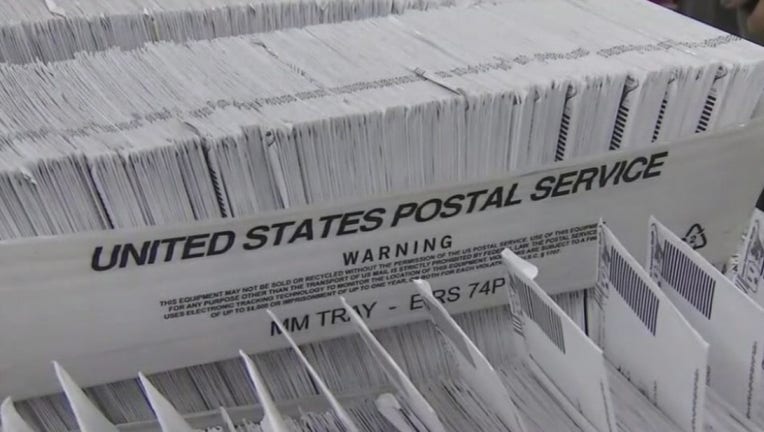State seeks to block subpoenas over elections law

TALLAHASSEE, Fla. - The state is asking a federal judge to block subpoenas that would require seven Republican legislators and a representative of Gov. Ron DeSantis’ office to testify about a controversial new elections law.
Attorneys for the lawmakers and DeSantis’ office filed motions last week to quash the subpoenas, which were issued by groups that have filed cases contending that the law is unconstitutional and designed to suppress voting by groups such as Black Floridians.
The lawmakers subpoenaed for depositions were Sen. Dennis Baxley, R-Ocala; Sen. Jim Boyd, R-Bradenton; Sen. Jeff Brandes, R-St. Petersburg; Sen. Joe Gruters, R-Sarasota; Sen. Kathleen Passidomo, R-Naples; Rep. Erin Grall, R-Vero Beach; and Rep. Blaise Ingoglia, R-Spring Hill, according to court documents.
The subpoena to the governor’s office does not specifically seek testimony from DeSantis but would lead to a deposition of a representative of the office on a series of potential issues, including the role of the office in drafting, negotiating, and passing the law (SB 90).
The motions to quash the subpoenas focus heavily on the concept of "legislative privilege," which helps shield policymakers from having to testify about their actions. The governor’s office also cited "executive privilege."
"At bottom, the governor’s office plays an integral part in the legislative process; the governor’s office also helps set and execute policy for the state," the motion filed by the governor’s office said. "Subjecting deliberations between the governor’s office and his staff to third-party depositions seems an end-run around the legislative immunity that applies to bills that he chooses to sign. And, as a practical matter, allowing discovery here might have a chilling effect on future occupants of the governor’s office as they grapple with policy choices while weighing the burdens of litigation that stretches the office’s resources."
Chief U.S. District Judge Mark Walker has ordered attorneys for the plaintiffs to respond to the state’s motions this week.
The law was one of the most controversial issues of this spring’s legislative session and quickly drew legal challenges. At least four lawsuits are pending in federal court. Among other things, the law made it harder for Floridians to cast ballots by mail and added restrictions to drop boxes, where voters can drop off completed ballots.
The subpoenaed legislators include Passidomo, who is chairwoman of the powerful Senate Rules Committee and is the incoming Senate president; Baxley, who is chairman of the Senate Ethics and Elections Committee; Gruters, who doubles as chairman of the Republican Party of Florida; Grall, who during the spring session was chairwoman of the House Public Integrity & Elections Committee; and Ingoglia, who is a former chairman of the Republican Party of Florida and played a lead role in passing the law in the House.
Plaintiffs in the lawsuits are looking for information about how the law was developed. As another part of that effort, the Florida State Conference of the NAACP, Common Cause and Disability Rights Florida, which are plaintiffs in one of the cases, asked a federal judge to force the conservative Heritage Foundation and its lobbying arm to comply with subpoenas for documents.
U.S. District Judge Donald Middlebrooks last week required the Heritage groups to provide the documents, which could shed light on any role that they played behind the scenes. The Heritage groups argued that the subpoenas would "chill" First Amendment rights.
In the motion to quash the subpoenas to legislators, attorneys for the state wrote that lawmakers had already agreed to turn over many documents to the plaintiffs, as the documents would be covered by public-records laws.
"If anything, the circumstances of this case cut strongly against depositions," the motion said. "For one thing, the members (of the Legislature) have largely agreed to provide the documents plaintiffs seek. Plaintiffs’ deposition subpoenas are, moreover, redundant of discovery they seek from other non-parties. For example, plaintiffs just won a motion to compel discovery from the Heritage Foundation, including discovery regarding the foundation’s communications with the Legislature. That is a category of documents plaintiffs sought from the members, too, and presumably is one of the topics they seek to explore in the depositions at issue. These multiple alternative avenues of proof greatly reduce the need to depose legislators."
Watch FOX 35 Orlando for the latest Central Florida news.

